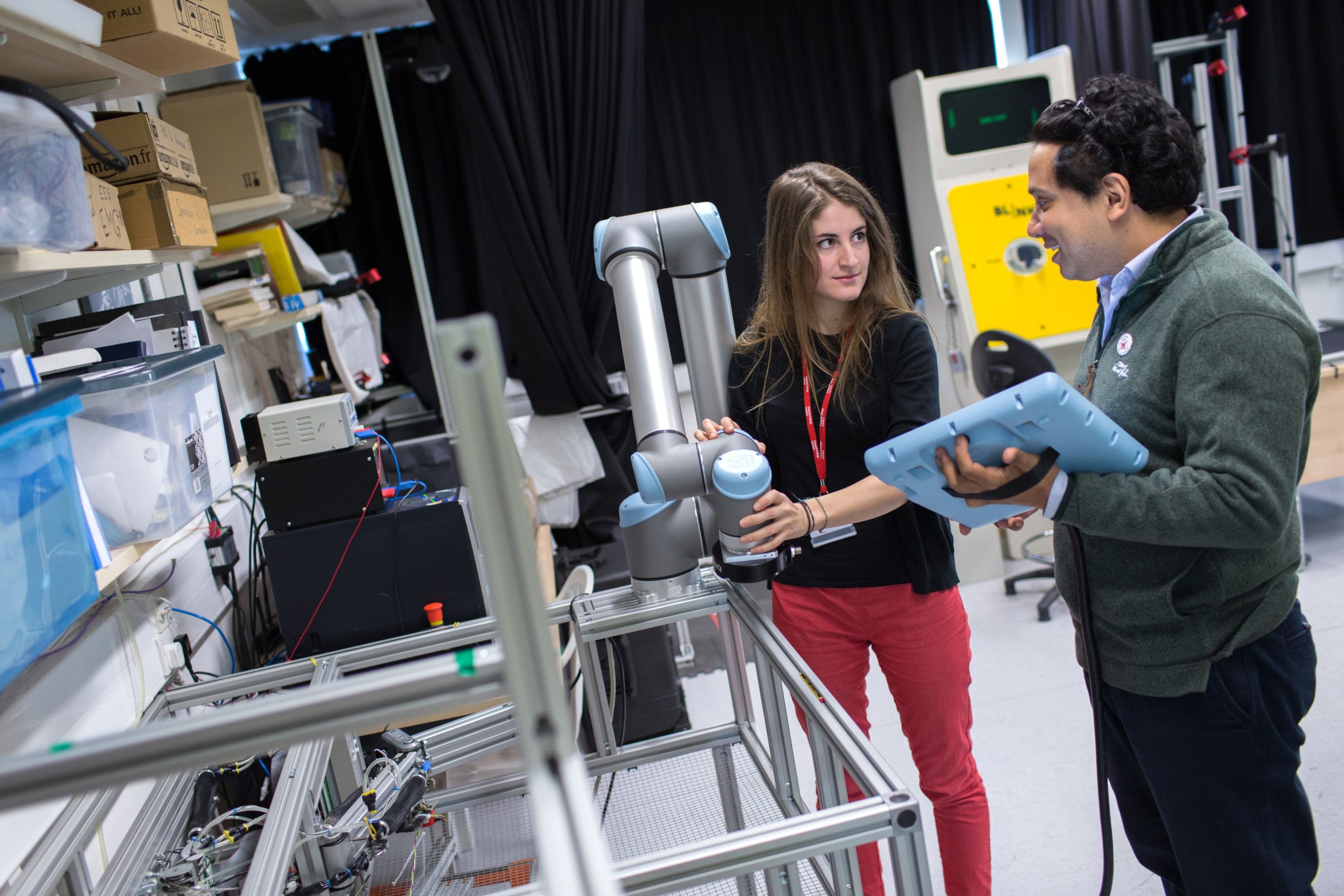
Biomedical Engineering
Develop a breadth and depth of engineering skills and knowledge to address problems in medicine and biology.
Learn how to use technology to help people live longer, healthier and happier lives
Explore a range of disciplines – from mechanics and nanotechnology to physiology, programming and design
Enrich your studies with the opportunity to take a year abroad or put your knowledge into practice during a year in industry
Course key facts
Qualification
MEng
Duration
4 Years
Start date
October 2025
UCAS course code
BH9C
Study mode
Full-time
-
Fees
£9,535 per year Home
£43,300 per year Overseas
Delivered by
Location
-
South Kensington
-
Applications: places
4 : 1 (2023)
Minimum entry standard
A*AA (A-level)
39 points (International Baccalaureate)
Course overview
As a biomedical engineer, you'll learn to use technology to help people live longer, healthier and happier lives.
You will have the chance to take fundamental engineering principles and knowledge of the human body and see how they are applied to potentially life-changing projects.
This course will suit you if you're interested in learning about a range of disciplines – from mechanics and nanotechnology to physiology, programming and design. Your course will be rooted in practical activities across these subjects, learning in our state-of-the-art facilities and interdisciplinary community.
With the ability to tailor your engineering interests to biomedical, electrical, mechanical or computational bioengineering, you'll be able to find a niche that suits you.
The skills you'll have the opportunity to develop will allow you to pursue careers in a range of sectors, whether it’s medical physics, starting your own company, or applying to a graduate medical programme.
Structure
This page is updated regularly to reflect the latest version of the curriculum. However, this information is subject to change.
Find out more about potential course changes.
Please note: it may not always be possible to take specific combinations of modules due to timetabling conflicts. For confirmation, please check with the relevant department.
You will study all of the following core modules.
Core modules
Gain a fundamental understanding of the chemistry and materials science principles related to bioengineering, including how material properties are governed by their structure at different length scales. You’ll also explore the foundations of classical thermodynamics and its applications in biomedical engineering and molecular sciences.
Uncover how to select the most appropriate mathematical technique for problem-solving and develop a platform of mathematical knowledge.
Learn the fundamentals of digital logic design and computer programming as you examine how digital computers communicate with the real world.
Explore the principles of mechanics and electronics and the mathematical connections between the two. Gain practical experience working in electronics and mechanics labs and uncover how these concepts can be used to study bioengineering problems.
Develop a foundational understanding of the chemistry and materials science principles related to bioengineering. You’ll also cultivate wet lab skills in preparing a range of biomaterials and practising key classification techniques.
Discover the principles of engineering design and broaden your practical skills as you utilise appropriate tools and software to solve a variety of design problems.
Professional accreditation
This degree is professionally accredited by the following organisations on behalf of the Engineering Council:
- Institution of Engineering and Technology (IET)
- Institute of Materials, Minerals and Mining (IOM3)
- Institute of Physics and Engineering in Medicine (IPEM)
- Institution of Engineering Designers (IED)
With this integrated Master’s degree, you’ll fully meet the academic requirements for professional registration as a Chartered Engineer.
With a professionally accredited degree, you’ll be able to demonstrate to employers that you have achieved an industry-recognised standard of competency. Professional accreditation also provides international recognition of your qualifications, which you can use to launch a career abroad.
Becoming a Chartered Engineer can further enhance your career prospects and earning potential. It demonstrates your competencies and commitment to lifelong learning – providing you with recognition in your field and greater influence and opportunities.
Our course accreditations are renewed every five years; the current accreditation agreement covering the current academic year and onwards is provisional and subject to our satisfying the requirements of the accrediting Professional Engineering Institutes, which we expect to complete by the end of the Academic Year.
Associateship
In addition to your degree, you’ll receive the Associateship of the City and Guilds of London Institute (ACGI) upon completion of this course. This associateship is awarded by one of our historic constituent Colleges.
Teaching and assessment
Balance of teaching and learning
Key
- Lectures, seminars and similar
- Independent study, group projects and individual research project
Year 1
- 27% Lectures, seminars and similar
- 73% Independent study, group projects and individual research project
Year 2
- 27% Lectures, seminars and similar
- 73% Independent study, group projects and individual research project
Year 3
- 17% Lectures, seminars and similar
- 83% Independent study, group projects and individual research project
Year 4
- 17% Lectures, seminars and similar
- 83% Independent study, group projects and individual research project
Teaching and learning methods
-
Laboratory sessions
-
Lectures and guest lectures
-
Make, build and test activities
-
Tutorials
-
Study groups
-
Virtual learning environment
Balance of assessment
Key
- Coursework
- Examinations
Year 1
- 30% Coursework
- 70% Examinations
Year 2
- 30% Coursework
- 70% Examinations
Year 3
- 47% Coursework
- 53% Examinations
Year 4
- 59% Coursework
- 41% Examinations
Assessment methods
-
Coursework
-
Examinations
-
Oral presentations
-
Poster presentations
Entry requirements
We consider all applicants on an individual basis, welcoming students from all over the world.
Minimum entry standard
A*AA
To include:
- A* in Mathematics
- A in Physics
- A in a third subject
Not accepted: General Studies and Critical Thinking
Science Practical Endorsement: If you are made an offer you will be required to achieve a pass in the practical endorsement in all science subjects that form part of the offer.
Typical offer
- A*AA–A*A*A (applicants studying three A-levels)
Made to at least 80% of 2023 A-level applicants.
Support for widening participation applicants
Our contextual admissions route for UK applicants may entitle you to additional considerations within the application process to help us form a more complete picture of your potential to succeed at Imperial.
Find out more about who is eligible and what support you may receive.
How to apply
Applications are closed for 2025 entry
Applications are closed for 2025 entry.
This department does not use a test as part of its selection process.
Predicted grades and scores in your application are important, but it’s not the only thing that drives the decision.
Our selectors will also consider things like your and your to understand whether there is a good match between you and your chosen subject and department at Imperial.
You can read more about our selection process, including tips on writing a personal statement, in our section.
Assessing your application
Admissions Tutors consider all the evidence available during our rigorous selection process and the College flags key information providing assessors with a more complete picture of the educational and social circumstances relevant to the applicant. Some applicants may be set lower offers and some more challenging ones.
Post-application open day and interview
When assessing applications, we will consider your examination results (already gained and predicted), your motivation and understanding of bioengineering as a career, your potential for leadership and teamwork, your interests and the referee’s report.
You may be invited to an online interview if your UCAS application indicates that you are likely to satisfy our entry requirements and you demonstrate interest and motivation to study this course.
Additional activities will include a talk from our department, a group activity and a virtual tour of our department.
An ATAS certificate is not required for students applying for this course.
This course includes opportunities to spend a year abroad or a year in industry.
Students interested in these opportunities should apply for this course (BH9C) in the first instance. Transfer to the Year Abroad or Industry options are possible up to the beginning of the third year, on completion of the shared syllabus in years one and two. You need to meet certain academic requirements to be eligible for transfer to the Year Abroad course.
If you are an international student, transferring to a different course could have an impact on your student visa. Please visit our International Student Support webpage for further information.
Year abroad
Language requirement
Teaching is in the language of your host country, so you will need to reach an acceptable proficiency in the relevant language before you go. Free language classes are available at the College to help you prepare.
Availability
There are limited places available on the Year Abroad programme, which means that competition for selection is strong and a placement cannot be guaranteed.
Normally, only students with marks of 60% or above will be eligible for placements in France and Germany. Only students with marks of 70% or above will be eligible for placements in Singapore and the USA.
Please note the list of universities located abroad that the Department currently has partnerships with is illustrative.
Partnerships with universities are subject to continuous review and individual partnerships may or may not be renewed.
Year in industry
You are responsible for finding a placement opportunity, with support available from the Department's dedicated Industrial Liaison Officer and the Careers Service. Securing a placement can be competitive, so you will need to identify suitable employers, and take part in recruitment activities with multiple employers.
The employer can often be in a location of your choice – including outside the UK – as long as you are successful in obtaining a position there and the placement is approved by the Department.
The Department also offers a MEng in Molecular Bioengineering. The main difference between the courses is that Biomedical Engineering takes a top-down approach, looking first at the whole organism, injury or problem and then working down to a cellular level.
By contrast, Molecular Bioengineering takes a bottom-up approach, first looking at cells and molecules, then building up from tissues and organs to the whole organism or human.
Transfer between the MEng Biomedical Engineering and the MEng Molecular Bioengineering is rare and you would need to have met the entry requirements for both programmes.
Fees and funding
Home fee
2025 entry
£9,535 per year
Year abroad
2025 entry
£1,450 for that year
Year in industry
2025 entry
£950 for that year
Important update for 2025 entry
The UK government has announced that, starting in April 2025, maximum tuition fees for Home undergraduate students in England will increase from £9,250 per year to £9,535. Find out more.
Your fee is based on the year you enter the university, not your year of study. This means that if you repeat a year or resume your studies after an interruption, your fees will only increase by the amount linked to inflation.
Find out more about our , including how inflationary increases are applied to your tuition fees in subsequent years of study.
Whether you pay the Home or Overseas fee depends on your fee status. This is assessed based on UK Government legislation and includes things like where you live and your nationality or residency status. Find out .
If you're a Home student, you can apply for a from the UK government to cover the entire cost of tuition for every year of your course.
The loan is paid directly to the university.
You will start repaying it only after you leave your course, have a job, and are earning above a certain amount.
Once the repayments start, the amount you pay each month depends on how much you earn, not on how much you owe in total.
Home students can apply for a means-tested to help with their living costs.
In November 2024, the UK government announced a 3.1% increase in English Maintenance Loans for 2025-26.
How you apply for student finance depends on whether you have studied before and where you’re from or normally live. Find out more on the UK government's website.
The is available to all Home undergraduate students with a household income below £70,000 per year.
The amount awarded is based on your household income, with up to £5,000/year available for students from the lowest income households.
It's money which you don't need to pay back, and it's paid on top of any government funding you may also receive.
It is available for each year of your course, as long as your annual household income remains below £70,000.
.
You might need to budget for additional costs related to your course that aren't covered by your tuition fees – like field trips, books and protective clothing.
Our extra costs page outlines the additional costs related to courses in each of our departments. It's not an exhaustive list and any additional costs you could incur will be determined by the course and modules you choose.
How will studying at Imperial help my career?
96% Of Imperial Bioengineering graduates in work or further study*
- 96% Of Imperial Bioengineering graduates in work or further study*
- 4%
91% Of Imperial Bioengineering graduates in highly skilled work or further study*
- 91% Of Imperial Bioengineering graduates in highly skilled work or further study*
- 9%
*2021-22 graduate outcomes data, published by HESA in 2024
This career-oriented degree allows you to pursue opportunities in a rapidly expanding field.
Around 60% of postgraduates find employment upon graduation, while just over a third opt for continued study or training.
Be equipped with the skills essential to pursue opportunities across a variety of career paths.
You can pursue a career in a range of sectors – with sought-after skills in medicine, healthcare and the medical devices industry.
Other potential career paths could include research, teaching, start-ups, consultancy and finance.
Further links
Contact the department
- Telephone: +44 (0)20 7594 3940
- Email: be.ugadmissions@imperial.ac.uk
Visit the Department of Bioengineering website.

Request info
Learn more about studying at Imperial. Receive useful information about our life in our undergraduate community and download our latest Study Guide.

Events, tasters and talks
Meet us and find out more about studying at Imperial.

Course data
Terms and conditions
There are some important pieces of information you should be aware of when applying to Imperial. These include key information about your tuition fees, funding, visas, accommodation and more.
You can find further information about your course, including degree classifications, regulations, progression and awards in the programme specification for your course.
Programme specifications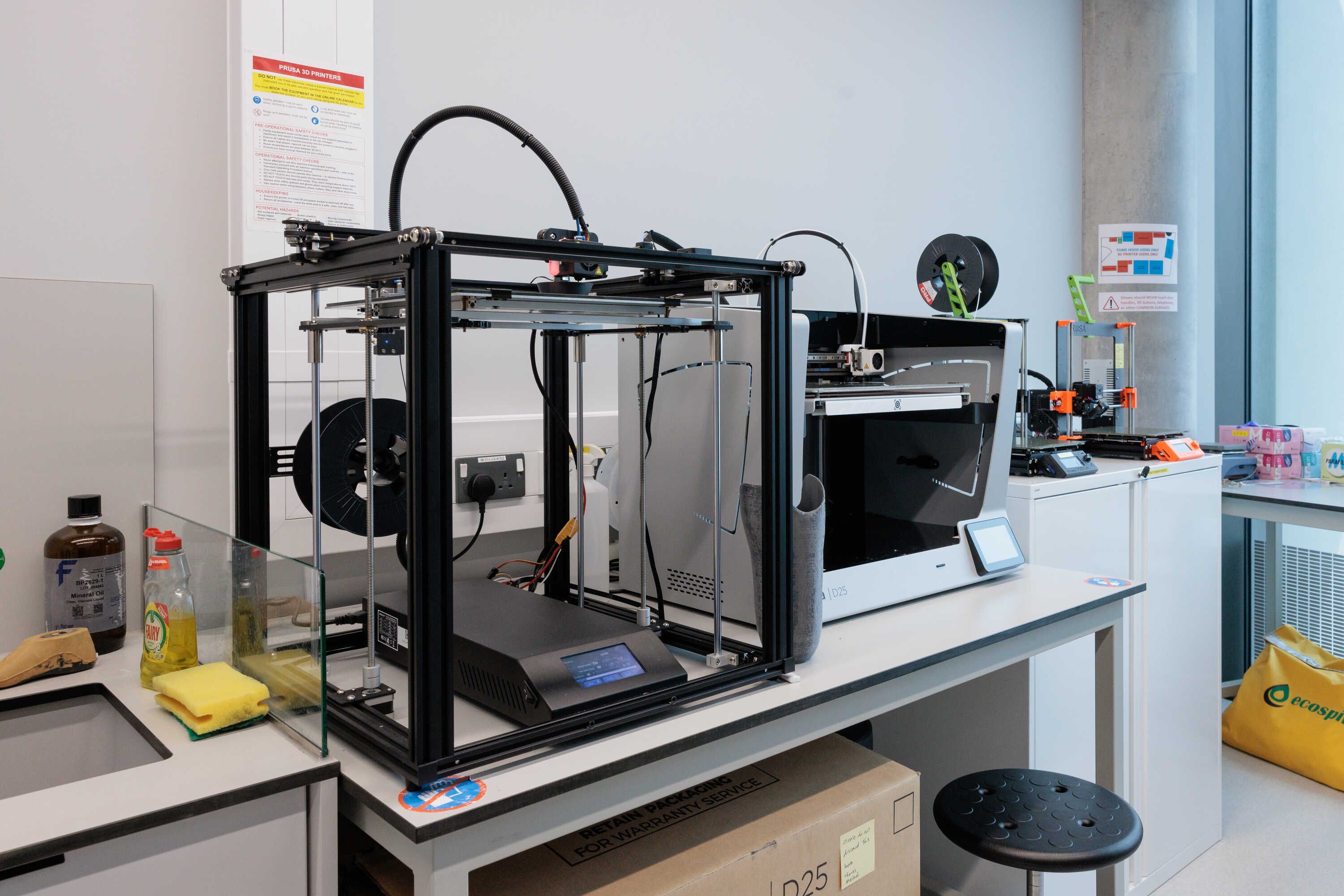
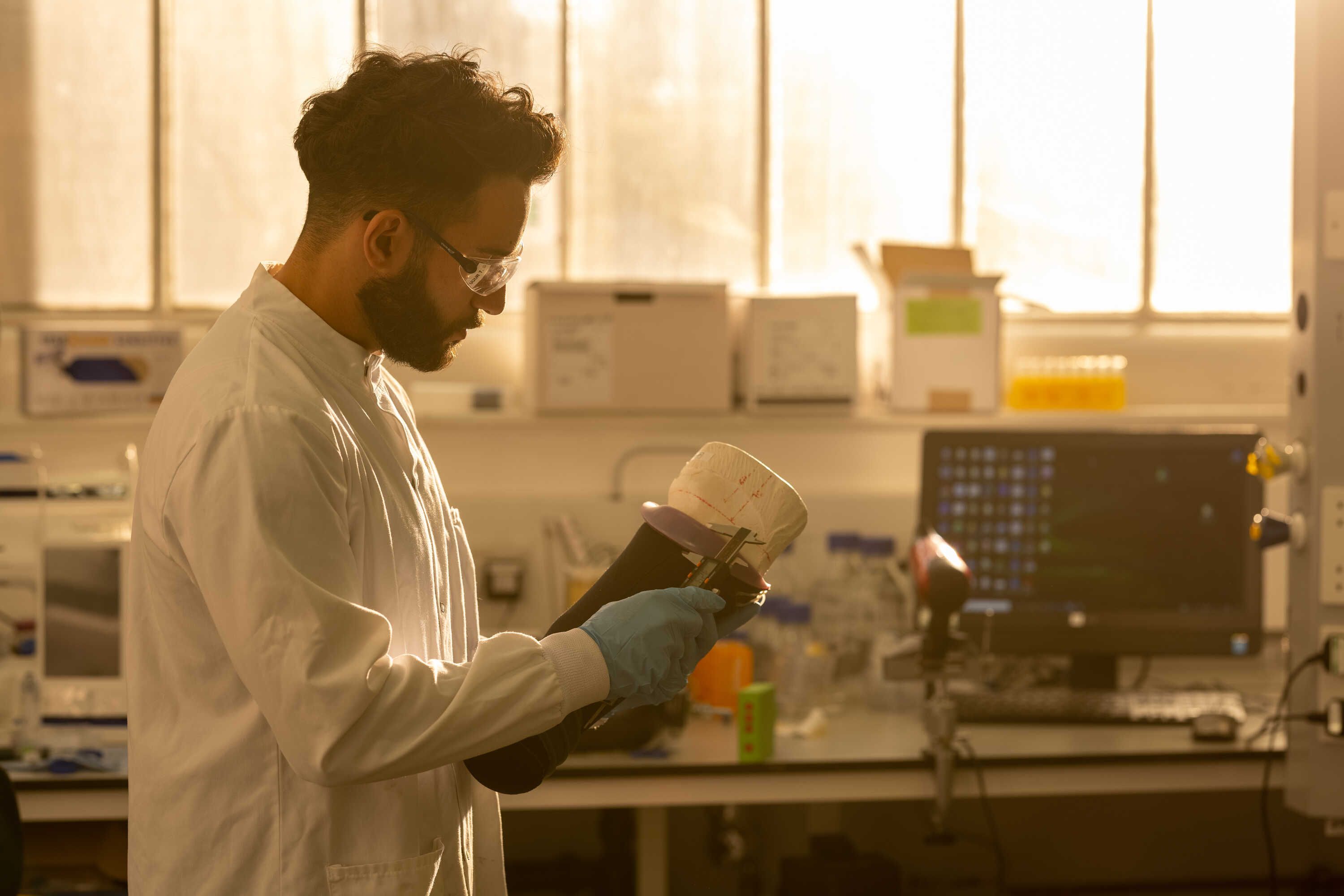
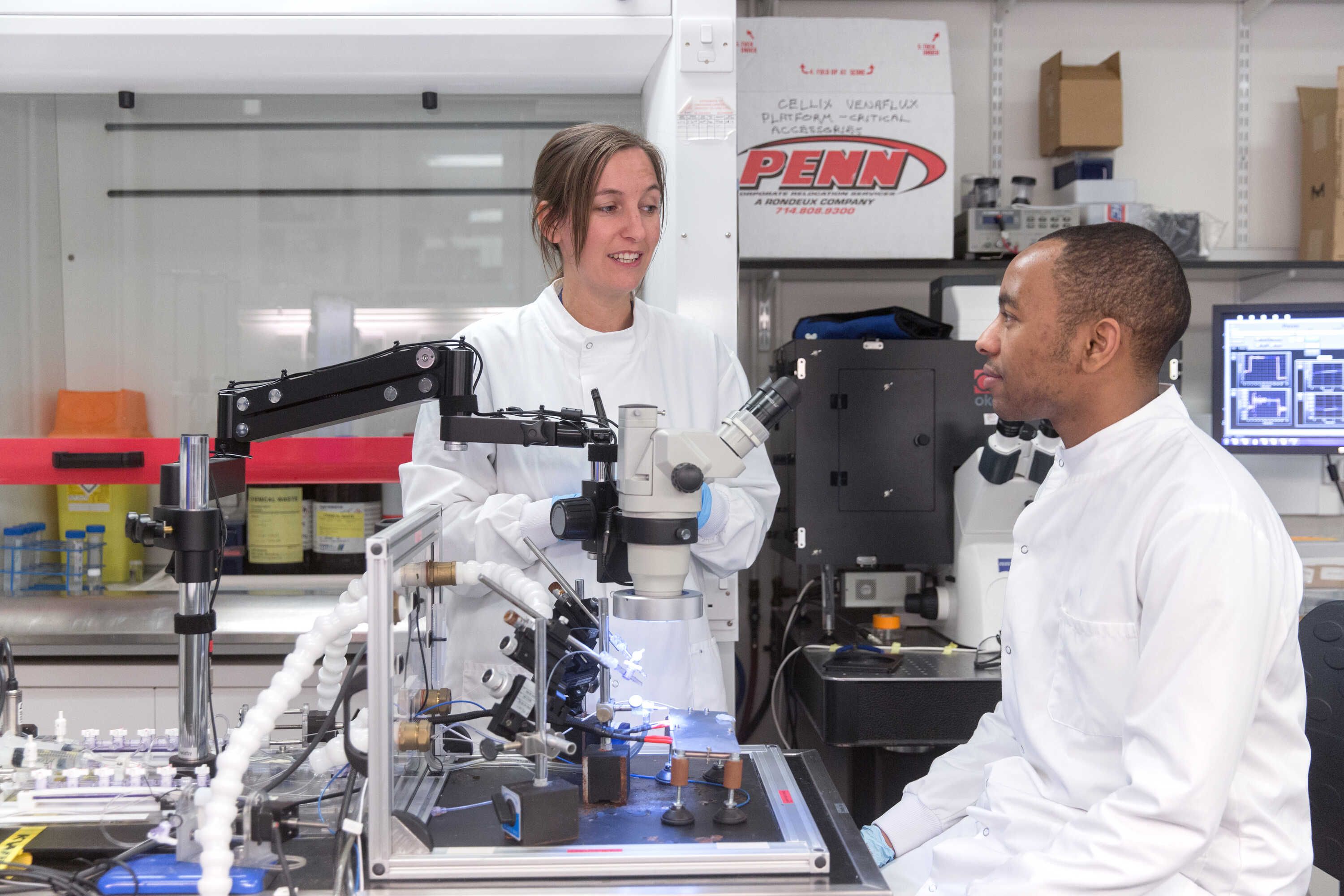
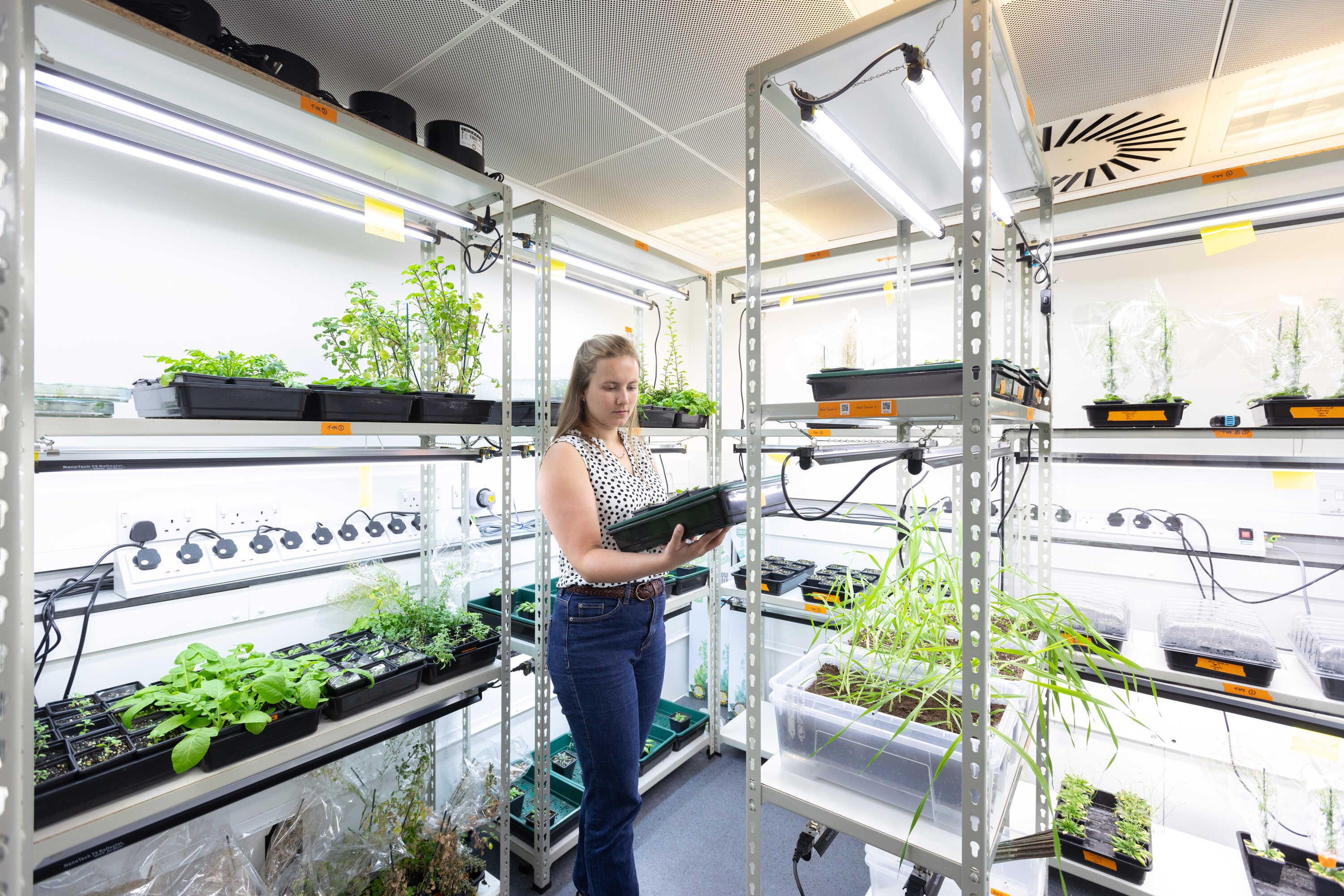
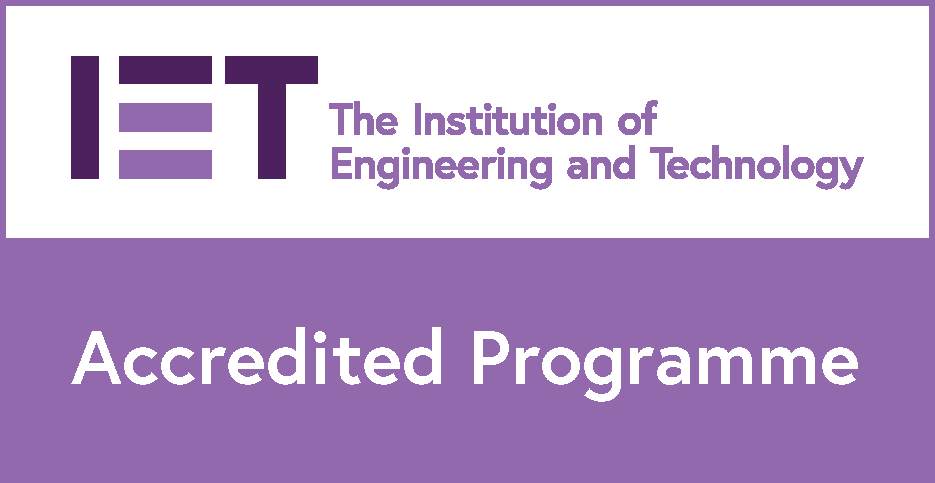

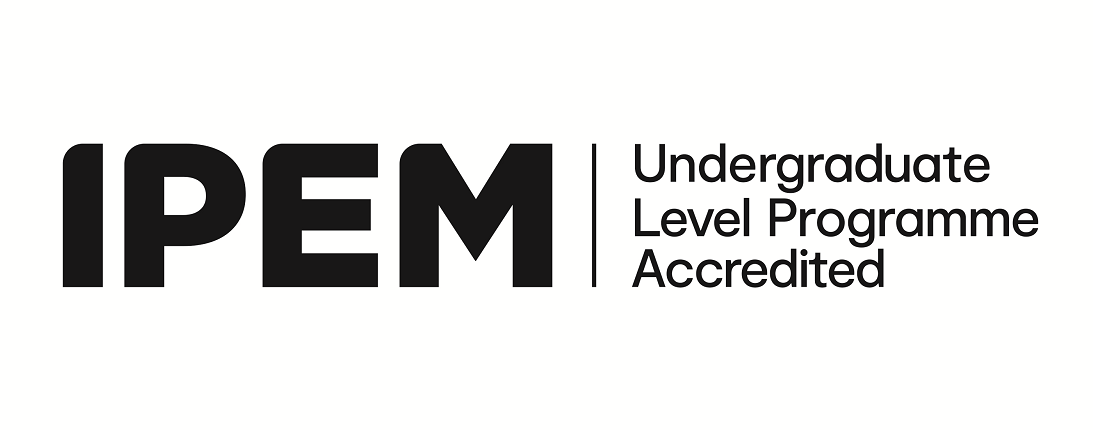
.png)